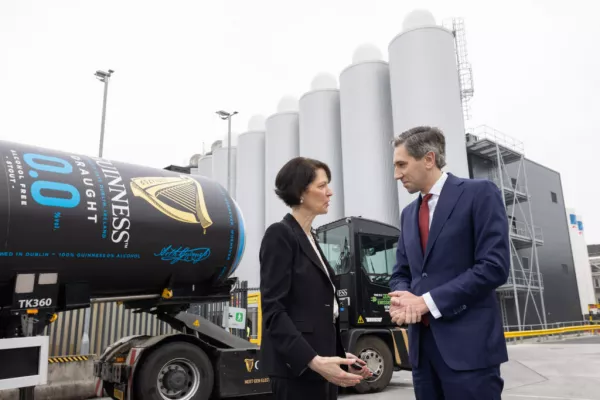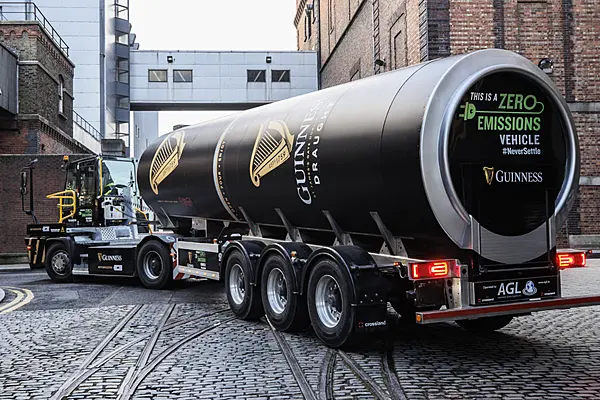Diageo has announced plans to invest over €100 million to decarbonise its St James’s Gate site, in Dublin 8.
The investment is part of Diageo’s ambition to accelerate to net-zero carbon emissions for the site and will transform energy and water consumption, with the aim of making it one of the most efficient breweries in the world by 2030.
‘Strong Message’
“Guinness has been made in Dublin for over a quarter of a millennium, and today, so many tourists visit the location while they are here,” said Taoiseach Simon Harris.
“It’s not just a green transformation for St James’s Gate, but a flagship transformation that will send a strong message to the world.”
Renewable-Energy Strategy
The investment announcement will enable St James’s Gate to entirely phase out the use of fossil fuels in its direct brewing operations and reduce Scope 1 and 2 greenhouse gas emissions generated by the site by more than 90%, in line with the Science Based Targets initiative’s definition of net zero.
By 2030, the site’s renewable-energy strategy aims to combine the use of grid-supplied electrical power heat pumps and biogas generated within a new water recovery facility.
This facility would also improve water use efficiency and enable a projected reduction in the water used to brew Guinness by 30%.
‘Sustainable Future’
The investment was announced at St James’s Gate by Diageo’s global CEO, Debra Crew, this week, when she was joined by the Taoiseach, the Minister for Enterprise, Trade and Employment, Peter Burke, and the CEO of Enterprise Ireland, Leo Clancy, who are providing government-backed support for the decarbonisation project.
“St James’s Gate is an historic location for an iconic brand,” said Crew.
“We’re 260 years into our 9,000-year lease at St James’s Gate, and this investment will ensure that Guinness has an exciting and long-term, sustainable future.”









